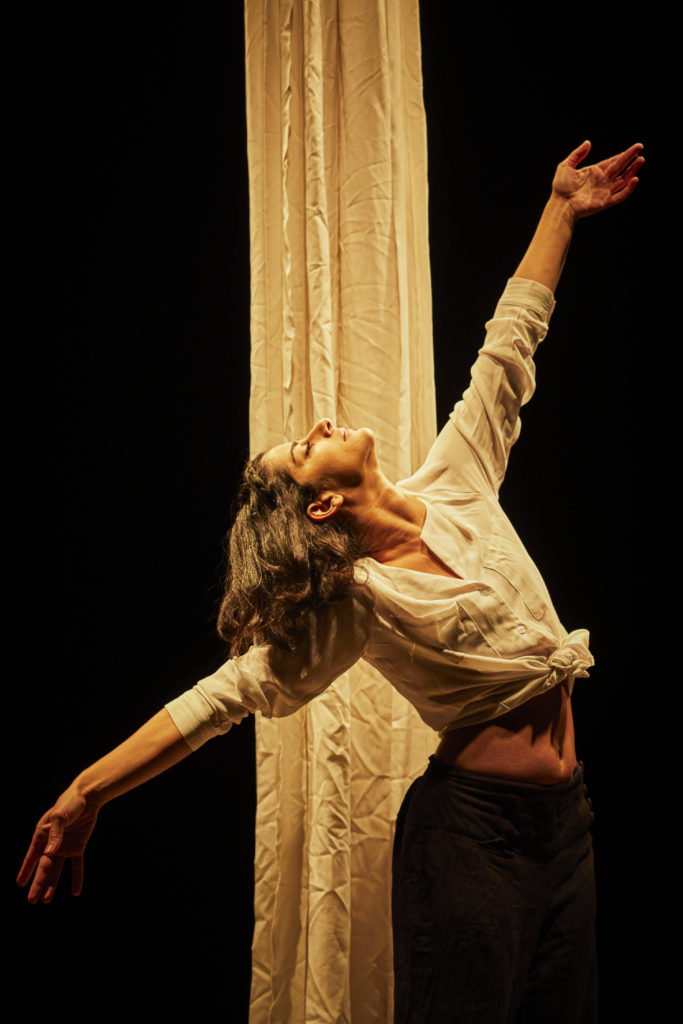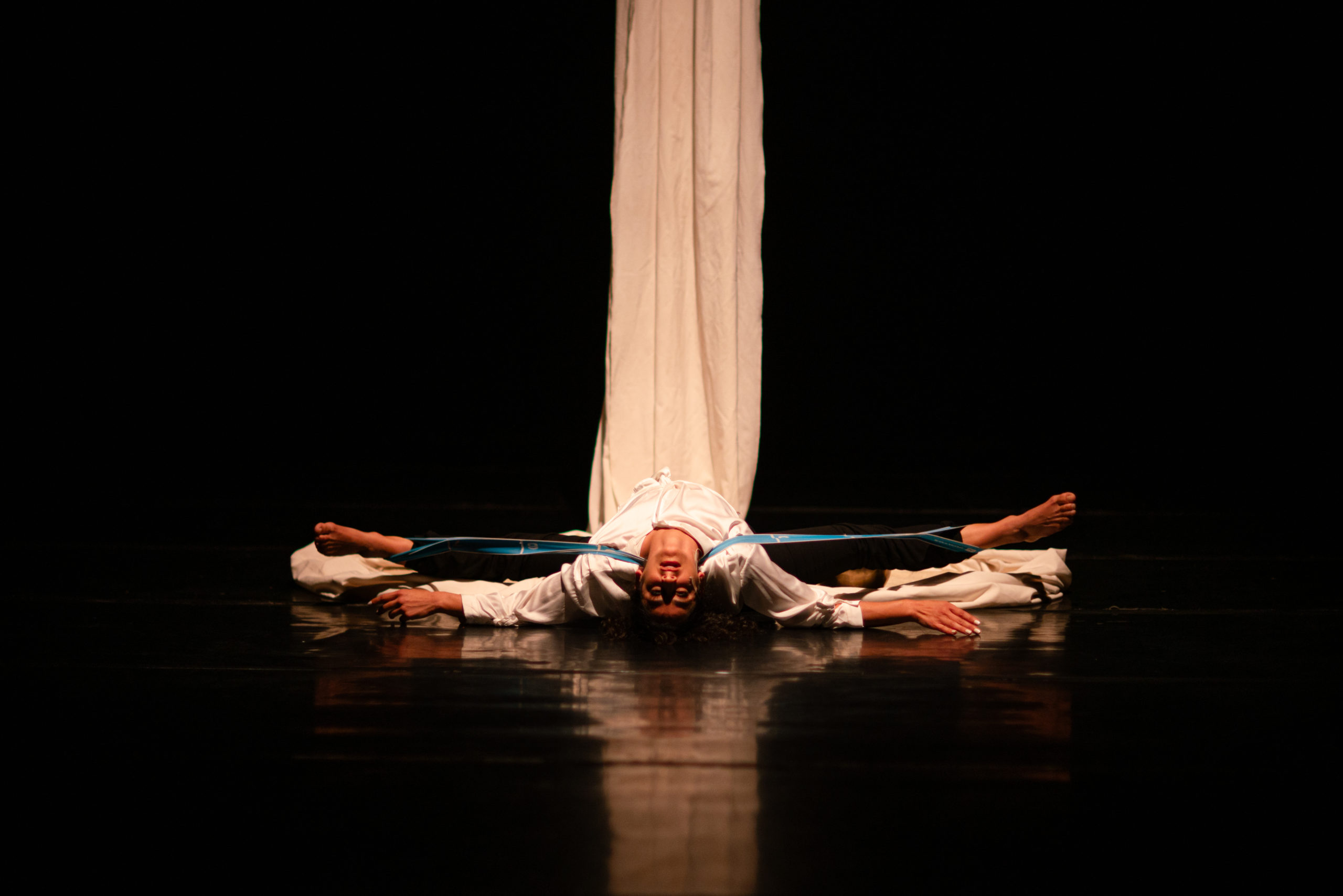Ashtar Muallem is a leading Palestinian circus performer and dancer whose work Cosmos made in collaboration with director Clement Dazin, comes to Edinburgh Fringe next month.
A collaboration at its core, Cosmos takes audiences on an existential questioning of what is real and imaginary, weaving in important references to Ashtar’s persecuted homeland, bringing this awareness to an international stage.
Born into a family who founded ASHTAR Theatre – a Palestinian theatre company for social justice – we sat down with Ashtar to speak about her longstanding artistic bond with Clement and how Cosmos is the product of human connections, lineage and her inspirational grandmother.
Q: Tell us about yourself and your practice.
A: I am a multidisciplinary artist, constantly expanding the boundaries of my practice. In my early years in Palestine, I spent much of my time at the ASHTAR Theatre, watching my parents rehearse, perform and thrive with their art.
As a child, I was drawn to dance; in my teens, I delved into circus arts. Over time, I discovered that my unique strength lies in blending these disciplines together to use my art as a means to create a better society.
My artistic practice extends beyond performance. I explore filmmaking, painting and any other medium my soul requires to expand and find meaning. Through this diverse approach, I strive to express and address the complexities of our world.
Q: Tell us about Cosmos and how the work came about?
A: Clement Dazin, the director of the show, and I first met in circus school in 2010 in Châlons-en- Champagne. Even back then, we worked well together as classmates. Ten years later, Clement invited me to join a show featuring six other artists from our circus school days. After the first week of creation, he recognised the wealth of material I had to offer and invited me to collaborate on a solo show, with him as the director.
We remembered our strong artistic bond and shared poetic and humorous perspectives. Cosmos was born out of this connection. The show is primarily based on my improvisations, which Clement skilfully helped me polish during rehearsals, incorporating a strong dramaturgical structure, poetry and humour. Together, we collaboratively wrote the text, creating a unique and compelling performance.

Q: What was it like to collaborate with Clement?
A: Our collaboration was fluid and characterised by a deep attentiveness to each other’s ideas and creative inputs. We work very well together as a team, fostering a dynamic and synergistic environment that enhances our artistic vision.
Q: Your solo performance in Cosmos is inspired by many things including your grandmother and connection to your homeland. How does movement in particular articulate or emphasise your connection to Palestine and your grandmother?
A: My grandmother is a constant presence in my life. She was deeply spiritual and raised me when my parents were often busy with their theatre. She instilled in me a profound connection to the invisible, which unites us to this day.
My parents and the drama classes, on the other hand, taught me to be rebellious and break the norms. They encouraged me to use my body and imagination to bend reality and create my own. This ethos is deeply embedded in my body and mind, serving as a vessel for the expression of my inner world.
Through movement, I articulate this blend of spirituality and rebellion, emphasising my connection to Palestine and my grandmother. My body becomes a medium through which I express the cultural and emotional heritage inside me.
Q: How and why do you use humour in Cosmos?
A: Humour is a powerful tool for addressing pain without imposing it on people. It serves as a portal to reach the audience’s hearts and evoke their compassion. By infusing humour into Cosmos, I can explore complex themes in a way that is accessible and relatable, creating a deeper emotional connection with the audience.
